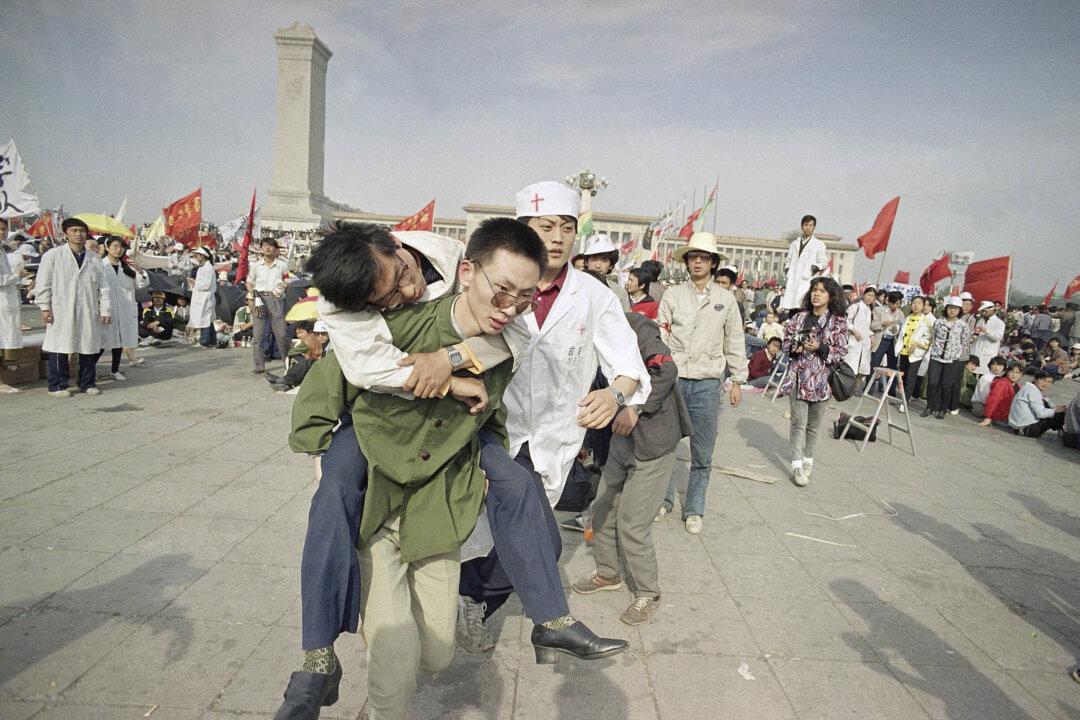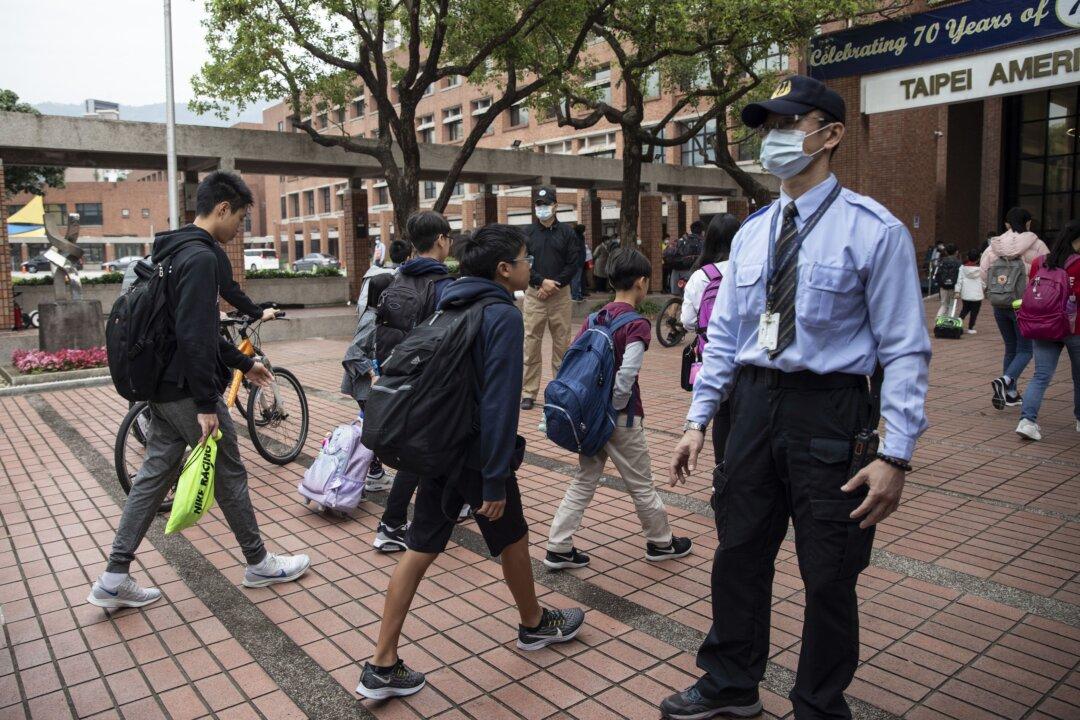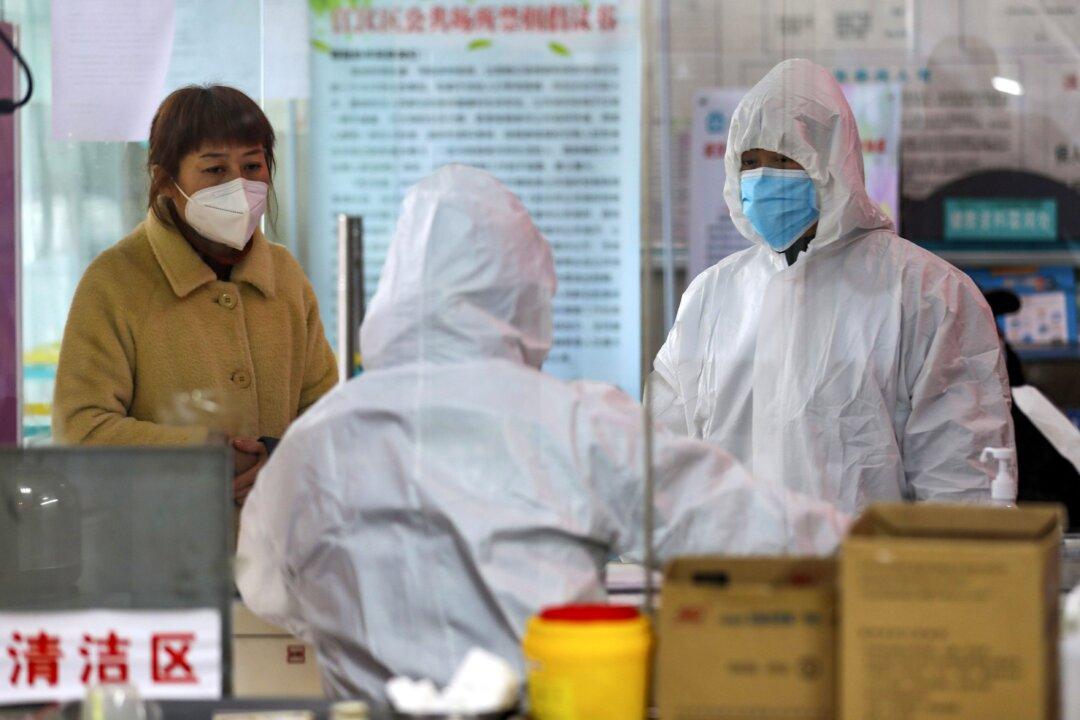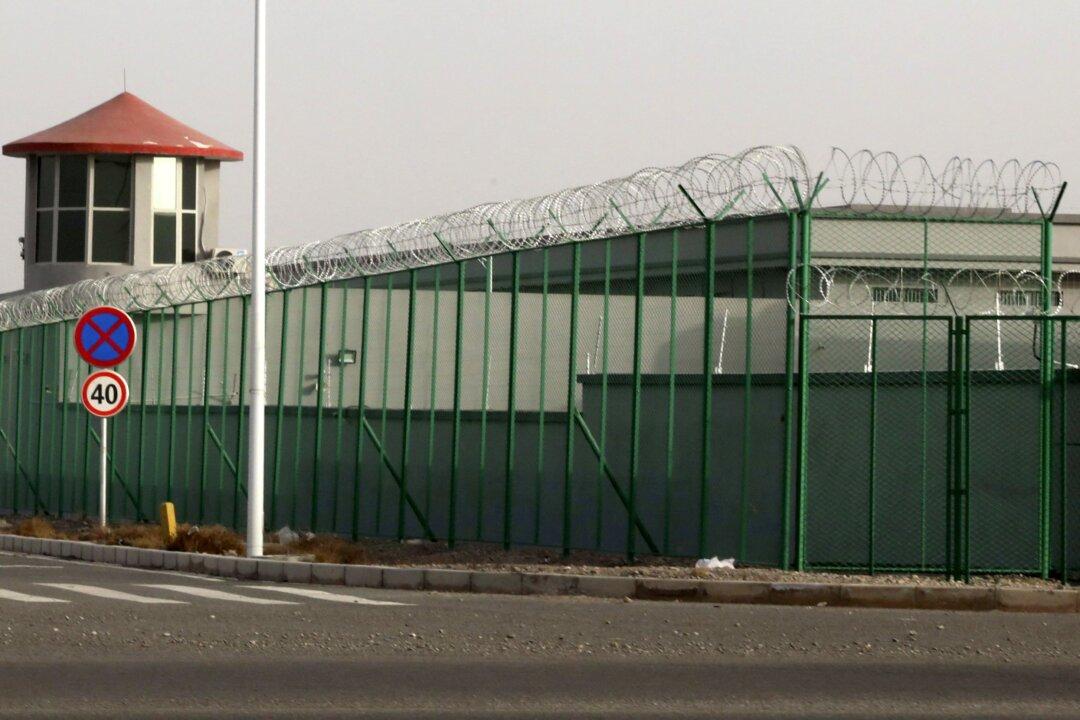In the spring of 1989, following the death of the former reform-minded Party Secretary Hu Yaobang, hundreds of thousands of Beijing residents took their complaints about widespread party corruption and other governance issues to the streets. Shielded by the presence of numerous foreign journalists covering the visit to China’s capital by then President Mikhail Gorbachev of Russia, many also demanded democracy, the rule of law and freedom of media. Their courage inspired demonstrations in 80 cities across the country, and estimates that about 100 million persons from all walks of life participated in the protests.
Then paramount leader Deng Xiaoping, who had twice been purged by hard-liner Mao and thus might have become a bridge to post-communism, pluralism and representative government, like his visitor Gorbachev, tragically opted instead to characterize events as a “counterrevolutionary riot.” Wuer Kaixi, one of the protest leaders, noted, “We repeatedly communicated to senior levels of the government that if they wished the students to withdraw they had to ‘give them a ladder to stand down’ … or else they would not go.”
Ousting Zhao
The literary critic Su Wei wrote: “... Li Peng and the other elders had a premeditated plan. They were plotting to oust [liberal-minded Party Secretary] Zhao Ziyang and undo a decade of reforms. As the government continued to provoke the students, it therefore became more and more difficult to ask the young people to behave rationally.” Zhao, who might well have become China’s Gorbachev, lost his job when martial law was declared and lived nearly 16 years under house arrest until his death in January 2005.
Quelling the People
The preface of “Quelling the People“ (1992), the seminal book by Timothy Brook, a Canadian historian, captures the essence of what then occurred: ”On the night of June 3, 1989, tens of thousands of soldiers armed with assault rifles forced their way into the city of Beijing and drove unarmed student protesters from the central square at Tiananmen. When hundreds of thousands of citizens and students blocked their paths, the soldiers opened fire. On the morning of June 4, thousands lay dead and dying in the streets, the hospitals and the homes of Beijing.”
According to the respected journalist, Liu Binyan, those who made the decision were “largely controlled by eight senile ’retired emperors’, all over eighty years, who did not hold formal office in the Party or government but who prop up their rule through brute force and lies ... To Deng as to Mao, people are nothing more than instruments: in wartime, they serve as soldiers; in peacetime, they are hands for production ...” Liu was twice expelled from the Communist Party, repeatedly persecuted and died in exile for speaking the truth.
Ghosts
The “Ghosts of Tiananmen Square“ by Ian Johnson, a Beijing-based correspondent for the New York Times, includes two especially important points:
• “Two new books (”The People’s Republic of Amnesia: Tiananmen Revisited,“ by Louisa Lim and ”Tiananmen Exiles: Voices of the Struggle for Democracy in China,“ by Rowena Xiaoqing He) tackle the Tiananmen events from this vantage point. One is set in China and is about repressing memory; the other is set abroad and is about keeping it alive. They agree that June 4 was a watershed in contemporary Chinese history, a turning point that ended the idealism and experimentation of the 1980s, and led to the hypercapitalist and hypersensitive China of today.”
• Johnson notes, “After the massacre, [He] went back to high school, defiantly wearing a black armband of memory for the dead. Her teachers made her remove it, and she cried bitterly, thinking the dream was over: ‘When I was forced to remove my black armband in 1989, I thought that would be the end of it. Bodies had been crushed, lives destroyed, voices silenced. They had guns, jails, and propaganda machines. We had nothing. Yet somehow it was on that June 4 that the seeds of democracy were planted in my heart, and the longing for freedom and human rights nourished. So it was not an ending after all, but another beginning …’”
The two days of June 3 and 4, 1989, were in fact fully consistent with a 65-year history of episodic party-state brutality against its own and other peoples, such as Tibetans and Uyghurs, who were normally first declared by Mao and his successors as “enemies of the party.” The major scapegoat since mid-1999 is the Falun Gong community.
Falun Gong Persecution
Johnson also mentions Falun Gong: “… consider that almost exactly a decade after Tiananmen, ten thousand protesters quietly surrounded the Communist Party’s Zhongnanhai leadership compound in Beijing, asking that their spiritual practice, Falun Gong, be legalized. Had they missed the government’s brutal message, or were they on some subconscious level emboldened by a rising consciousness among ordinary people—a sense that they had rights too? ... The Falun Gong protesters met with intense repression, including torture ...”
Falun Gong (or Falun Dafa) is a spiritual discipline, which seeks to improve body and ethics. It contains features of traditional systems, like Chinese Qigong, Buddhism and Daoism (Taoism), combined with a set of gentle exercises. Because it grew astonishingly rapidly from its inception in 1992, the Party saw it as a threat, labeled it a cult, and commenced persecution against practitioners from mid-1999 to the present day.
David Matas and I located independently numerous kinds of proof, set out in our book “Bloody Harvest,” that Falun Gong have been killed in the thousands since 2001 so that their organs could be trafficked for large amounts to Chinese and foreign patients. For the period 2000-2005, we arrived at the figure of 41,500 such transplants by deducting from the 60,000 transplants claimed by the government for the period our best estimate of the number of executed criminals (18,550).
In the 2012 book “State Organs,” researcher Ethan Gutmann estimates that 65,000 Falun Gong were killed for their organs during the years 2000-2008 from about 1.2 million of them interned in China’s forced labor gulag. In 2007, a U.S. government report estimated that at least half of the inmates in 350 camps were Falun Gong.
After 1980, the post-Mao Party began withdrawing funds from the health system across China, requiring it to make up the shortfall from service charges to mostly uninsured patients. Selling the organs of executed convicts became a source of income for surgeons, the military and other participants. After 1999, Falun Gong prisoners of conscience became a live organ bank for wealthy Chinese patients and “organ tourists” from abroad, who often preferred that the “donors” were Falun Gong, being healthy persons normally, rather than convicted prisoners.
Matas and I visited about a dozen countries to interview Falun Gong practitioners sent to labor camps, who later managed to leave the camps and the country. They told us of working in appalling conditions for up to sixteen hours daily with no pay and little food, crowded sleeping conditions and torture. They made a range of export products as subcontractors to multinational companies. This constitutes both corporate irresponsibility and a violation of WTO rules.
Here are two of numerous pieces of evidence that led us to our conclusion:
• Our investigators made many calls to hospitals, detention centers and other facilities across China, claiming to be relatives of patients needing transplants and asking if the hospitals had organs of Falun Gong for sale. We obtained on tape and then transcribed and translated admissions that various facilities were using Falun Gong organs.
• Falun Gong practitioners who were detained and later got out of China testified that they were systematically blood-tested and organ-examined while in detention in forced labor camps across the country. The blood testing and organ examination could not have been for their health, since they were regularly tortured, but it would have been necessary for organ transplants and for building a bank of “donors.”
Engagement With Beijing
Despite the party-state’s governance record, the international community should engage as constructively as feasible with the new government in Beijing, while pressing it constantly to end organ pillaging and other abuses of its own and other peoples. Democracy with very Chinese characteristics is probably closer than many think. The values most of us represent on the matter are universal, including equality for all citizens, the rule of law and independent judges, multiparty democracy, corporate social responsibility and the need for manufacturing jobs within a protected natural environment everywhere. The people of China should know that democrats everywhere stand with them, not their government, just as we did with central/east Europeans during the Cold War and with South Africans during the lead up to the release of Nelson Mandela from prison and his election as president of a democratic nation.
The late Vaclav Havel was threatened that his country would lose exports to China if he invited the Dalai Lama to Prague. The visit took place and nothing appears to have been lost. When Canada’s Prime Minister Harper stood up to Beijing after 2008, the same threats were made. Bombardier Inc announced one of its biggest contracts ever in China not long after Harper demonstrated what Canadian values stand for in the world. In short, bluster aside, Beijing appears to respect those who stand up for universal values and the rule of law even if it does not.
As much of the world continues to experience severe economic problems, we should keep in mind that economic relations with China at any price is often hazardous. We must remember the sacrifices of victims of the massacre and other abuses. Instead of mocking the Universal Declaration of Human Rights, China’s party-state should honor its provisions.
Investing in China
Selling services, goods and natural resources to virtually any country is in my opinion acceptable (subject to security considerations), but investing in ones without full reciprocity for foreign investors and without respect for their own citizens and the rule of law is inevitably problematic. No responsible government should permit the sale of its businesses to state-owned companies (SOEs) from anywhere.
So much continues to goes wrong for foreign investors in China. For example, McDonald’s opened its first restaurant in Beijing a number of years ago under what it thought was a twenty-year lease. Two years later, it was told to get out because a large domestic developer wanted to build over its location. What hope of fair treatment is there for most foreigners if a huge multinational is abused thus?
A Canadian family I knew invested their life savings and those of friends in a pharmaceutical firm not far from Beijing about a dozen years ago. The mayor of the adjacent city had run the business before it was privatized, but wanted it back. He evidently pulled enough levers under the table that the plant was soon padlocked. The Canadians lost every penny; the respective embassies in Ottawa and Beijing said they could do nothing to help.
Sino-Forest Inc. was delisted from the Toronto Stock Exchange last year; about 50 Chinese companies have been delisted by the SEC in the U.S. Investors and consumers alike in and outside China are fed up with toxic toys, poisonous food, theft of intellectual property and other business frauds.
‘Robber Baron Capitalism’
Canada’s columnist Jonathan Manthorpe wrote tellingly in the Vancouver Sun a couple of years ago that what prevails in China are variations of a Ponzi scheme: “A local government, without a functioning system for raising tax revenue—and … riddled with corruption … sells development land to garner cash … (first getting rid of [farmers] living on the land) … And, this being China … the municipality has the power to instruct the banks to lend the development company the money for the sale. So the local government gets its cash, the municipally owned company gets to build a speculative residential or industrial complex, and all seems well.”
In the Financial Times, not long after Manthorpe wrote, was a story about how in one coastal city luxury apartments were to be built for as much as 70,000 yuan ($11,000) a square meter, about twice the annual income of the average resident. To finance a 150 square meter unit in the building would consume every penny of a typical resident’s income for 350 years. Is this not a housing bubble extraordinaire, which is going to burst with a lot of citizen grief?
If anyone thinks a bilateral investor protection treaty will prevent problems, consider Canadian Clive Ansley. He practiced law in Shanghai for 13 years and notes, “There is a … saying among Chinese lawyers and judges who … believe in the rule of law … ‘Those who hear the case do not make the judgment; those who make the judgment have not heard the case.’” Another issue causing Ansley to leave China was an edict that went out to all judges across the country, telling them that foreigners were not to win in China’s courts.
I’m told by the academic Greg Autry of California that the United States has lost an estimated 57,000 factories and 20 million manufacturing jobs mostly to China over the past two decades. How many such jobs have been lost in many other countries over the same period for the same reason? To my knowledge, only the United States is so myopic as not to tax company profits from investments kept offshore.
Autry asked Professor Ann Lee of NYU in Global Trade magazine (April/May 2012): “What would you tell an American who lost his job at[a] factory and had to take two retail jobs without benefits selling Chinese-made goods to his fellow Americans, about why the U.S.-China relationship has been mutually beneficial?”
Governments, investors and business leaders might also examine why they are supporting the violation of so many universal and democratic values in order to increase trade/investment with China. It has resulted mostly in jobs being outsourced to China and continuous increases in our bi-lateral trade/investment deficits.
Are the rest of us so focused on inexpensive consumer goods that we ignore the human, social and natural environment costs paid by millions of Chinese to produce them?
Last year, even Wal-Mart pledged to hire more than 100,000 American veterans and boost its sourcing from domestic suppliers. The retailer announced a three-part plan to help jump-start the American economy, which includes spending $50 billion to buy more American-made goods over the next ten years and helping its part-time workers move into full-time positions. How about responsible Taiwanese companies again recognizing that fellow citizens with good manufacturing jobs are their best consumers?
I understand that Chinese banking is dominated by state-owned banks that lend primarily to inefficient government businesses and currently pay about 0.3 percent for deposits. There is no deposit insurance. These factors encourage abused depositors to invest in increasingly risky realty and stocks. There is a very large amount of money in the shadow banking sector, but it has very little regulation. It also holds a lot of the total debt in China, which since 2008 has surged to about 210 percent of GDP. In short, when Premier Li Keqiang said that he expects to see some corporate defaults on debt this year, banking would seem like a good sector for candidates. The retail, manufacturing, housing and investment sectors in China have all weakened sharply in the first quarter of 2014. What happens when China’s estimated $23 trillion credit bubble bursts?
Professors Autry/Navarro
Greg Autry and Peter Navarro at the University of California argue convincingly that consumer markets worldwide have been “conquered” by China largely through cheating. They have made proposals to ensure that trade becomes fair. Specifically, they say all nations should:
• define currency manipulation as an illegal export subsidy and add it to other subsidies when calculating anti-dumping and countervail penalties;
• respect intellectual property; adopt and enforce health, safety and environmental regulations consistent with international norms; ban the use of forced labor effectively—not merely on paper as now—and provide decent wages and working conditions for all;
• apply provisions for protection of the natural environment in all bilateral and multilateral trade agreements in order to reverse the “race to the environmental bottom” in China and elsewhere.
The Nobel laureate economist Paul Krugman has predicted that Beijing’s ongoing refusal to let its currency float will cause retaliation in a world struggling with overcapacity. He adds that by displacing the output and jobs of other nations with its own low-wage goods, China is arguably the prime culprit in holding back a robust recovery in global economies.
Conclusion
The Chinese people want the same things as the rest of us, respect for all, education, safety and security, good jobs, the rule of law, democratic and accountable governance and a sustainable natural environment. If the party-state ends its systematic and gross violations of human rights at home and abroad and begins to treat its trade partners in a transparent and equitable way, the new century can bring harmony and coherence for China and the world. The first step in a better direction is to end organ pillaging now.






